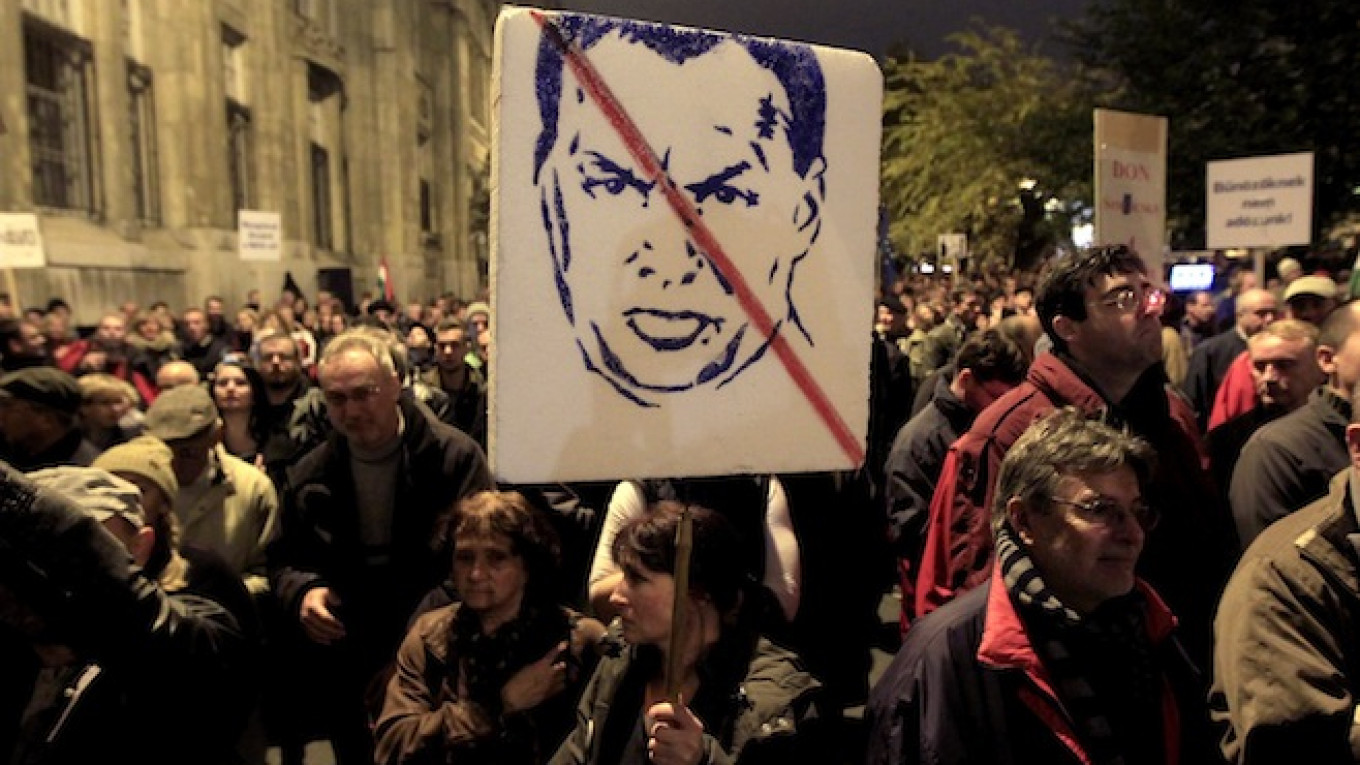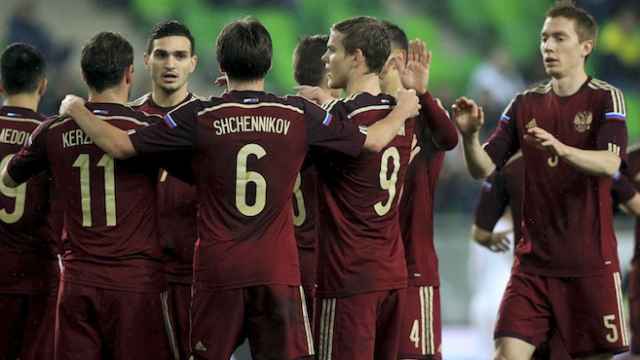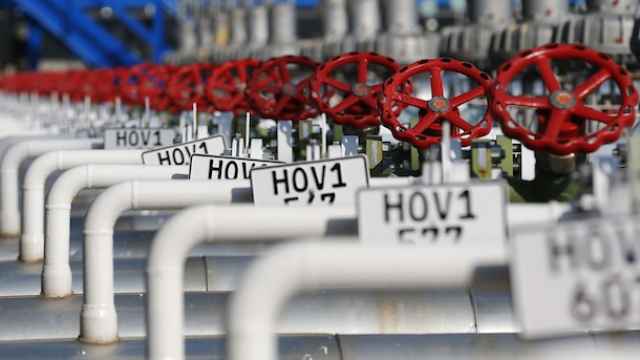BUDAPEST — When Russia's national football team took to the pitch for a friendly match against Hungary, Hungarian Prime Minister Viktor Orban watched intently from the VIP section of Budapest's new stadium.
Hungarian officials say he was there because he loves football. But at a time when most EU leaders are at pains not to associate with Russia over its intervention in Ukraine, Orban's presence at the stadium stands out.
To his opponents inside Hungary and to some Western diplomats, Orban is moving dangerously close to the Kremlin, a course that risks forcing his country of about 10 million people to the margins of the European Union.
Hungary has signed a 10 billion euro ($12.5 billion) deal with Russia to build a nuclear power plant in Hungary, committed to build the Russian-backed South Stream gas pipeline despite opposition from Brussels, and stopped shipping gas to Ukraine that was helping Kiev evade a Russian energy blockade.
At a rally of Orban opponents outside parliament on Monday, one protester held a banner with the Soviet hammer and sickle emblem stenciled on it and a slogan that read: "We don't want to be a colony."
The biggest cheer of the night went up when an opposition supporter inside the parliament building waved a EU flag from an office window.
"They call it an interests-based policy but it is not in our interests to be marginalized with the EU," said Bernadett Szel, a lawmaker with the small opposition LMP party. "It leads us nowhere."
Orban says he is not drifting into Russia's orbit, just being pragmatic. That applies especially to energy. Hungary depends on Russian gas imports, and Western-backed efforts to provide alternative supplies have stalled.
The majority of Hungarians back his policies. His Fidesz party won a second term in April by a landslide.
"In no way is there any drift" towards the Kremlin, said Zoltan Kovacs, a government spokesman. On Orban's presence at the match, he said the prime minister tried to attend all Hungary's games. "So do not make or take it as political in any way," he said.
At the football match on Tuesday, there was no sign of any anti-Russian feeling, though some jeering did break out among the disappointed Hungarian fans after their team conceded two goals. The final score was 2-1 to Russia.
A Message from The Moscow Times:
Dear readers,
We are facing unprecedented challenges. Russia's Prosecutor General's Office has designated The Moscow Times as an "undesirable" organization, criminalizing our work and putting our staff at risk of prosecution. This follows our earlier unjust labeling as a "foreign agent."
These actions are direct attempts to silence independent journalism in Russia. The authorities claim our work "discredits the decisions of the Russian leadership." We see things differently: we strive to provide accurate, unbiased reporting on Russia.
We, the journalists of The Moscow Times, refuse to be silenced. But to continue our work, we need your help.
Your support, no matter how small, makes a world of difference. If you can, please support us monthly starting from just $2. It's quick to set up, and every contribution makes a significant impact.
By supporting The Moscow Times, you're defending open, independent journalism in the face of repression. Thank you for standing with us.
Remind me later.






